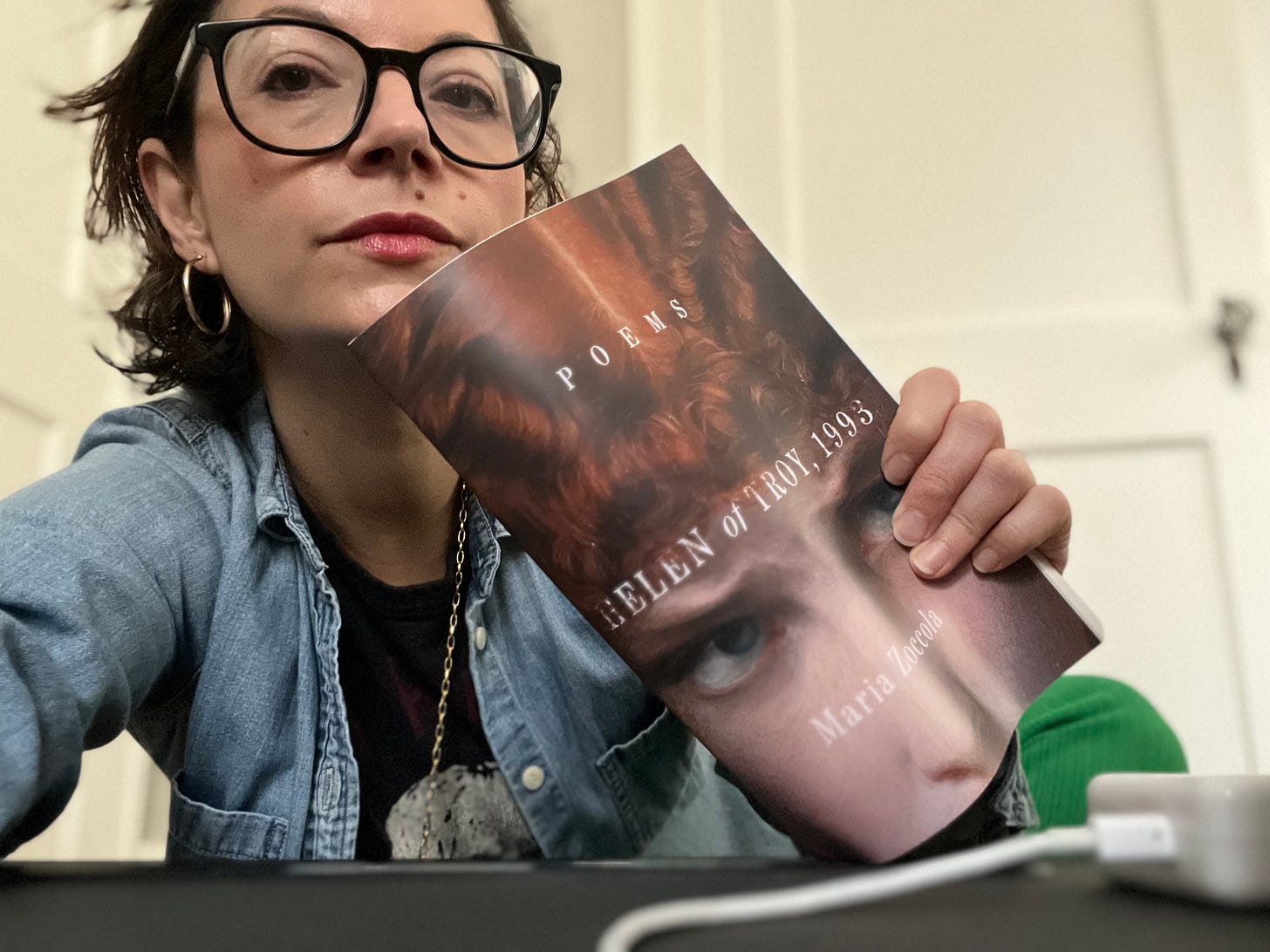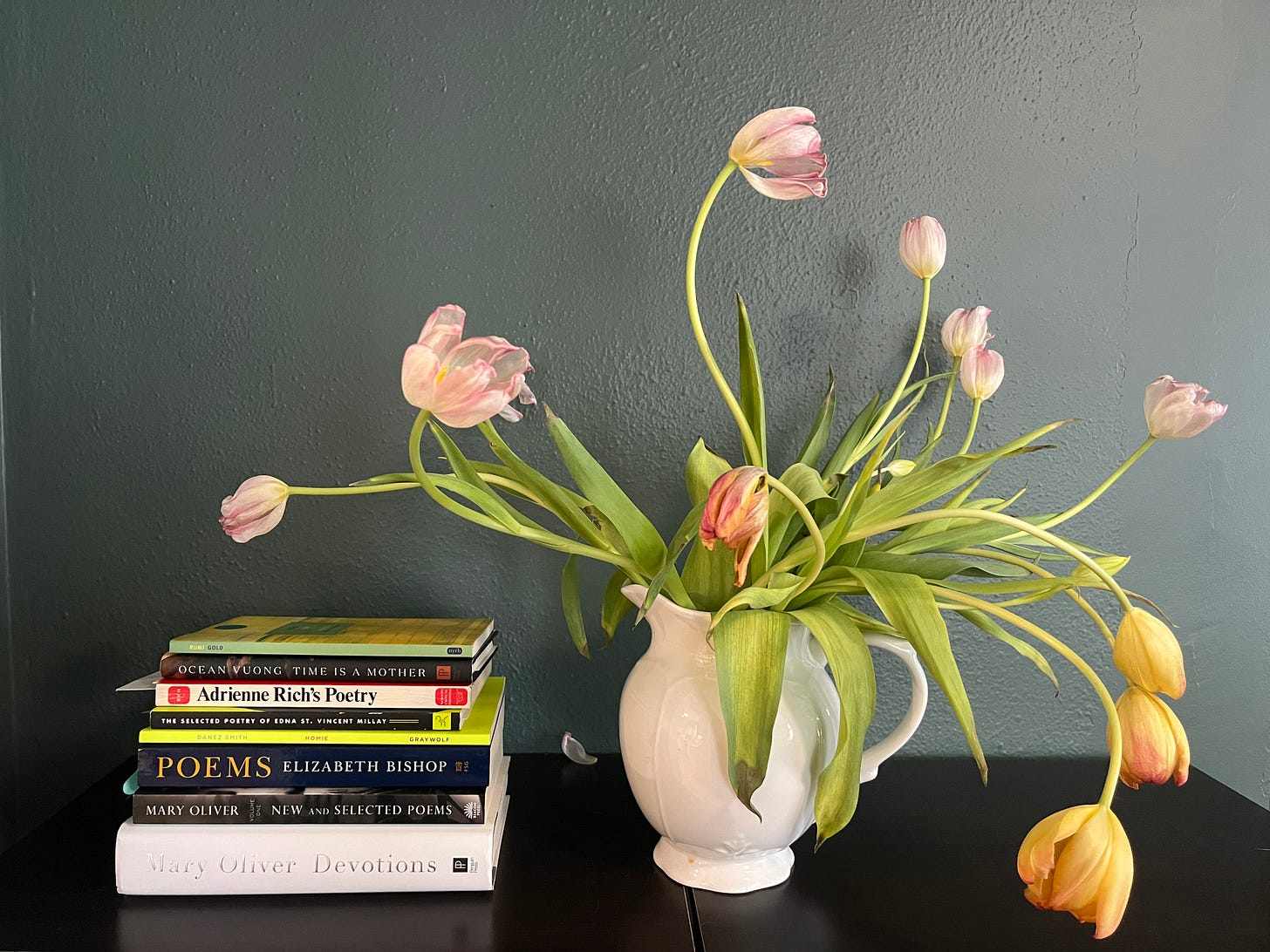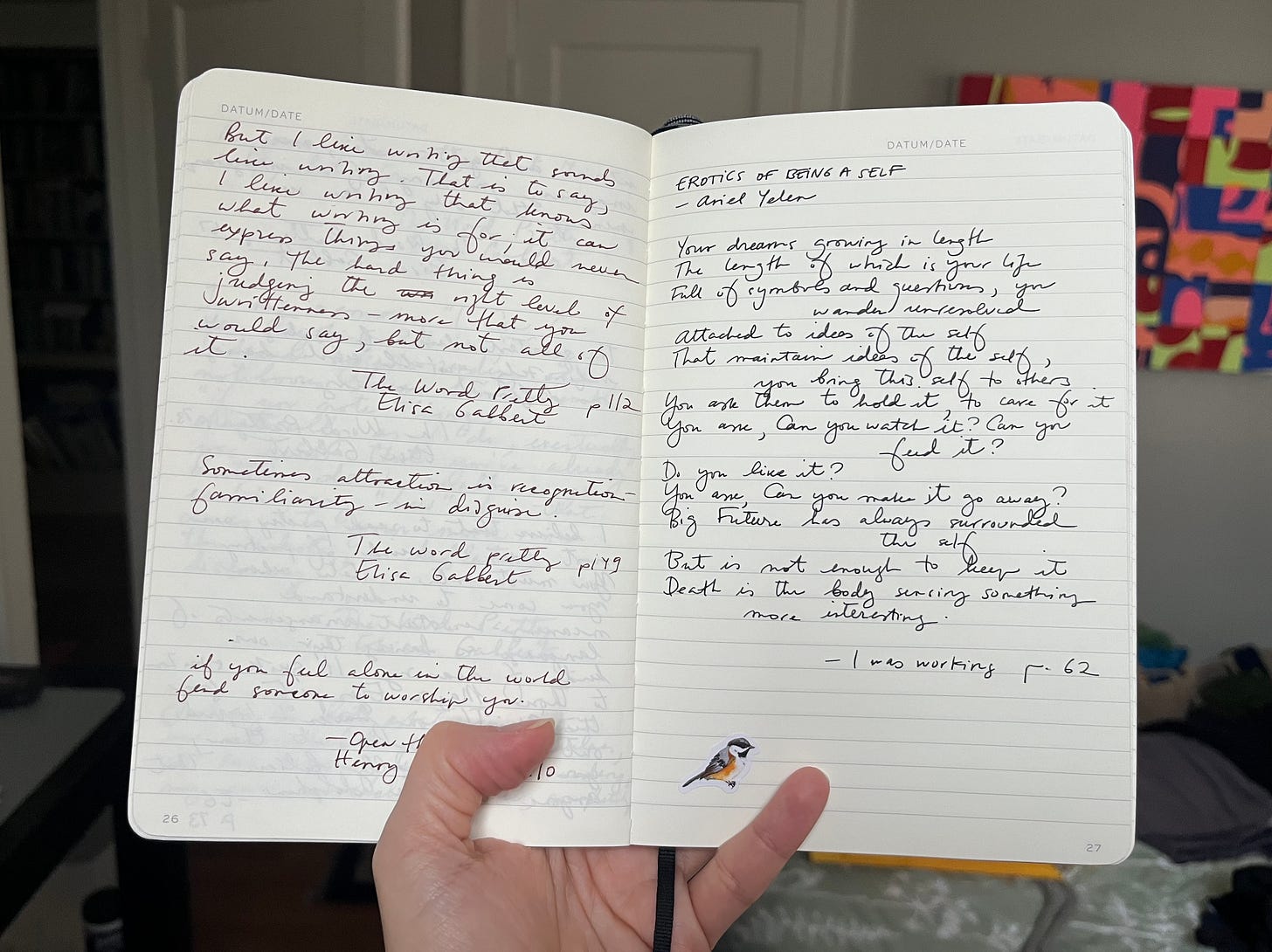Issue 111: On making an effort
Overcoming longstanding fears and letting myself read (poetry) badly.
Last week, I threw a fit about jeans. So much so that Saint herself called me and staged an intervention. She listened patiently while I cried about it, then instructed me to pull out a measuring tape. We talked, we measured, and by the end of the conversation, I had ordered some jeans. All week I have been trying on and returning jeans. No keepers just yet but I am getting closer — I know what measurements I am looking for, I know what shapes and materials I like, I have options and, most importantly, I am feeling hopeful. While unboxing a package (one of many), I realized something mildly humiliating: never in my life have I actually taken the time to measure myself before shopping. And yet, making that one little bit of an effort is what set me on the right path. Who would have thought?
Earlier this year, I felt an inexplicable pull toward poetry. There is no reason for it. If anything, I should have resisted it. As I mentioned last week, I’ve always felt incapable and unworthy of poetry, so I avoided it. Over the years, I cycled through every variation of it’s not for me, I don’t get it, it’s too abstract, too inaccessible. But because I’ve reached a point in my life where I trust my intuition, I decided to make a little bit of an effort… and try. I made a commitment to read at least one book of poetry a month. In January I read The Hurting Kind by Ada Limon, in February I read I Was Working by Ariel Yelen and this month I am reading Helen of Troy, 1993 by Maria Zoccola.
I don’t quite know where this urge is coming from, only that I’m craving a different kind of reading experience. Poetry doesn’t just tell stories or explain things; it creates spaces for resonance and connection, working through suggestion, imagery, and emotional precision. And I? I’m in a state of yearning—for intensity, for language that distills and heightens experience rather than diffuses it. Those of you who’ve followed my reading for a while know I’ve already been leaning toward non-plot-driven books. Poetry, even more intensely, gives me exactly what I crave: openness, ambiguity, and a multitude of interpretations.
But wanting something and being ready for it are different things. The urge is there, but reading poetry is still hard. So I’ve been making an effort—not just to read, but to learn how to read.
1| A poetry audit
I went through the house and gathered every poetry book I could find. (We have multiple Rumi collections because our daughter is partially named after the poet). And I have already read some of them — Time Is a Mother by Ocean Vuong is phenomenal.
Apparently, I’ve been circling this idea for longer than I realized—I already owned some fantastic collections.
2| Reading badly
As a recovering A+ student, this one is hard for me. But I felt encouraged by — one of my most favorite book creators on YouTube — who said in a video that people avoid poetry (and critical texts) because they fear not getting it. Her advice? Who cares? Read badly. Drop the expectation of perfection and just read with curiosity. See what you do get. Maybe not everything, but something. That’s how I ended up picking up The Hurting Kind by Ada Limón in January. Can I write a cohesive review of the book? Not yet. Can I decipher all the riddles in her poetry? Absolutely not. Can I marvel at them? Yes. And maybe that’s the point.
3| Writing things down
My commonplace journal is becoming my Windex—it’s the solution to everything. But truly, when I copy poems by hand, something shifts.
I feel them differently. I experience them in my body. My brain makes connections I wouldn’t otherwise make.1
4| Using an anthology to find my poets
Inspired by Rumi, I picked up 50 Poems to Open Your World by Pádraig Ó Tuama. My plan is to mark my favorites, knowing that by the end, I’ll have at least one poet I want to read more of—most likely, many more. Seeding your next read from your current one is always a good habit.
5| Reading about reading poetry
I recently had a humbling realization: there are books that explain poetry. (Please don’t laugh.) I’ve spent my whole life feeling jealous of people who get poetry, never stopping to ask how they acquired that skill. Oh. So now, I’m reading Mary Oliver’s A Poetry Handbook—amazing—and, on ’s recommendation, I ordered How a Poem Moves by Adam Sol.
I share all this not because I think everyone should be reading poetry right now (though if you have poetry appreciation insights, I want them all). But because it’s useful to see what effort can look like beyond the usual push to simply read more. In this case, the effort itself is rewarding. I went into this thinking poetry would be a challenge. I’m coming out realizing that making the effort—taking the time to sit with words, to puzzle through meaning, to let ambiguity exist—is the whole point.
Some questions for you:
In what areas of your reading life are you currently trying to make an effort?
What does effort look like for you?
Do you read poetry?
I entered a public pact with to start using all of my stickers… but I am having a really hard time, as you can see. Baby steps.









I'm actually hoping you'll talk more about jeans, LOL.
I love this! Particularly your point about reading "badly." Reading poetry is a sensory--and in my opinion spiritual--experience. It can be fun to really dig your teeth into a poem and dissect it for all it's worth, but there's also real value in just reading it and letting it wash over you. I would add to your note about copying poems down that reading poems ALOUD is sooooo important. It's easy to forget that poetry is meant to be read aloud, but for me it can make all the difference--and take me from enjoying a poem to remembering it foreverrrrr!